We discussed the mission and goals of the institution with Yunus Emre Enstitüsü President Prof. Dr. Şeref Ateş who heralded that the Enstitü will preside the Global Public Diplomacy Network (GPDNet) for the next three years.
Interview by: SELÇUK TURAN
You draw attention to the importance of cultural diplomacy on behalf of Turkey. How would you describe the role Enstitü plays for international relations? What is the mission of cultural diplomacy for Turkey?
The common name of all activities carried out by Yunus Emre Enstitüsü, can be explained with the concept “cultural diplomacy”. We establish connections with world nations and work towards conducting joint scientific and cultural projects. We operate in various fields abroad to promote, popularise and bring to spotlight all aspects of Turkey. Considering the field we are active in, this is of course cultural diplomacy. Moreover diplomacy is a multifarious network. In this respect, we consider each Turkish cultural organisation and intellectual working abroad as part of cultural diplomacy. Cultural diplomacy is a living thing. Such that, as Yunus Emre Enstitüsü we make efforts to reiterate the outstanding refined cultural artefacts of these lands in a format world can comprehend. We support original projects in this sense. Yunus Emre Enstitüsü was elected as the President of Global Public Diplomacy Network for the next three years due to these operations. This is one of our major achievements.
Hundreds of people have taken interest in Turkish language thanks to the efforts Enstitü has made for years. Where will the Enstitü be in 2023 with the goal of having opened 100 centres?
Yunus Emre Foundation was established in 2007 in accordance with the law no 5653. However the foundation officially launched its operations and completed its establishment process in April 2009. Yunus Emre Enstitüsü is funded by Yunus Emre Foundation by law and is the institutional respondent in all activities organised both home and abroad. Thereby we carry out all our activities abroad under the roof of Yunus Emre Enstitüsü. As specified in the law, we realise projects to promote Turkish language, culture, literature, history, art, rich Turkish cuisine abroad and to cater to the needs of interested citizens and cognates and related communities abroad concerning art, language and culture. Undoubtedly having opened 100 centres by the 100th establishment anniversary of our Republic and correctly explaining the cultural, scientific and historical resources of Turkey in 100 cities of the world are among our priority targets. We continue to work faithfully and enthusiastically to achieve these goals.
One of the missions of Yunus Emre Enstitüsü is to make Turkish instruction popular abroad. You carry out operations in various locations. How is the interest towards Turkish?
We hold the promotion of Turkey in two legs: First is organising culture-arts activities and the other is to teach Turkish to aspired trainees in countries we are active in. We attach importance to bringing Turkish to larger masses so that our culture and civilization can be shared within a larger circle. There is no doubt that instruction cannot be provided unless there is demand; you cannot force people to learn something. Moreover this is the age of supply and demand. There is significant demand for Turkish in countries we are active in.
Various departments under our Enstitü assess the demands using scientific methods and open Turkish courses. Of course it is not our only operation. It is really important to healthily teach Turkish to trainees by employing scientific methods. This means we carry out Turkish instruction abiding by the criteria of Common European Framework of Reference for Languages and language levels. Our Enstitü also devises various materials for Turkish instruction and continues its operations with significant scientific activities from Seven Climates Turkey textbook to Distance Turkish Instruction and Turkish Proficiency test.
Our Enstitü has provided more than 50 thousand young people with Turkish lessons. Our trainees continue Turkish lessons at various levels. In addition to trainees who directly contact our centres for Turkish instruction, various institute and organisations as well as schools make requests for our support in Turkish instruction. As I stated before, Yunus Emre Enstitüsü works towards catering to huge demands by employing scientific methods.
Enstitü has the project of positioning Turkish as the second language after the mother language in some countries in the Balkans and North Africa. Could you briefly tell us about it?
We have achieved to meet the demands of various institutions so far. At the end of our efforts, in the Balkans and specifically in Bosnia-Herzegovina, Turkish has been included in educational system as the second foreign language. As a result, now there are nearly six thousand students in Bosnia-Herzegovina between 6th and 12th grades. Ministries of Education in Zenica-Doboj, Herzegovina-Neretva, Bosansko-Podrinje, Central Bosnia, and Sarajevo cantons in Bosnia-Herzegovina, included Turkish as the secondary foreign language elective course in curricula of elementary and middle schools, between 6th and 12th grades which is a major achievement of Turkey. This is the first time that Turkish is included in the curricula of state schools as the mandatory second language in Europe. Our operations here have yielded results and Turkish has been accepted as “Mandatory Second Foreign Language” also in Poland. Next to these countries, a private elementary school in Jordan and five high schools in Romania offer Turkish course as an elective foreign language. There are efforts to have Turkish featured as an elective foreign language course also in academic education. Currently some universities in Japan and Montenegro offer Turkish as an elective foreign language course.
You organise more than a thousand culture-arts activities yearly. How do you determine the content of these activities?
It is known that culture is a matter of exchange and interaction. In the modern world, the unilateral cultural domination of the past has been replaced by cultural exchange. In addition to economic moves in the last fifteen years, Turkey’s humanitarian, moral and political rise in international relations, aids us in this exchange. There is no doubt that the rising Turkey that pursues proactive policies reorganises all relations. No one had thought of presenting our cultural roots and values to distinct masses in different regions until today. Here we, as Yunus Emre Enstitüsü, with strong support of our state and nation, share our civilization codes and cultural values that are Turkish cultural atlas with the whole humanity. In presenting our own cultural values, we also work on getting familiar with the cultural values of the nations we relate to, and proceed by mutual interaction. We carefully discuss to the requests of our centres in carrying out our activities. A centre sends us the annual activity calendar and if our friends in the relevant departments are convinced that these activities contribute in the communication between Turkey and respective country, our Presidency approves it and necessary preparations are launched afterwards. A wide range of activities are generated in our Enstitü headquarters and we organise major activities in various regions and cities. All of our activities are based on a human-oriented future vision.


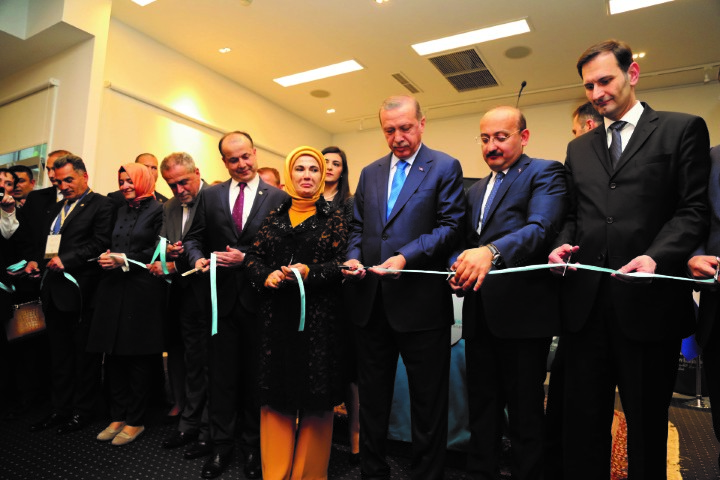

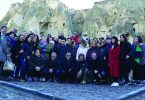
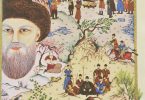
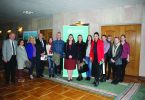
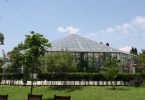

Leave a Comment